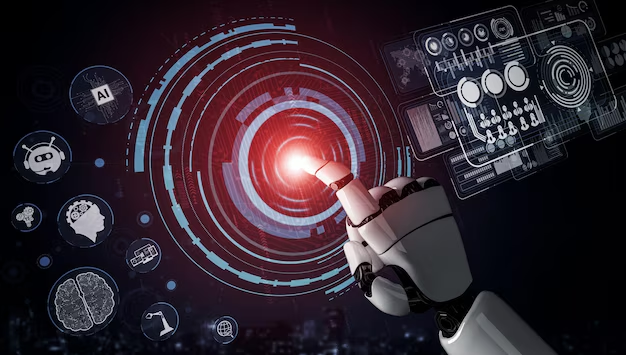Artificial Intelligence (AI) has transformed industries, reshaped business models, and revolutionized how we interact with technology. However, as its influence grows, so do the ethical questions surrounding its development and application. Balancing innovation with responsibility is crucial to ensure AI benefits society while mitigating potential harm. This article explores the ethical challenges and opportunities presented by AI.
Understanding AI Ethics
AI ethics focuses on the moral principles and societal considerations involved in designing, developing, and deploying artificial intelligence systems. It aims to address how AI affects individuals, communities, and the broader environment, ensuring its use aligns with human values and rights.
Key Ethical Challenges in AI
1. Bias and Discrimination
AI systems learn from data, which often reflect societal biases. When algorithms are trained on biased datasets, they may unintentionally perpetuate or even amplify those biases.
- Examples:
- Discriminatory hiring algorithms favoring certain demographics.
- Biased facial recognition technology misidentifying individuals based on race or gender.
- Solution: Incorporate diverse datasets, implement fairness checks, and ensure ongoing auditing of AI models.
2. Privacy Concerns
AI-driven systems often collect and analyze vast amounts of personal data, raising concerns about surveillance and data misuse.
- Examples:
- AI-powered advertising platforms tracking user behavior without explicit consent.
- Predictive policing systems infringing on privacy rights.
- Solution: Enforce data protection regulations like GDPR, prioritize transparency, and adopt privacy-preserving techniques such as data anonymization.
3. Accountability and Transparency
Who is responsible when AI systems cause harm? The opaque nature of some AI models, like deep learning algorithms, complicates accountability.
- Examples:
- Autonomous vehicles involved in accidents.
- AI-powered financial systems causing economic harm through erroneous decisions.
- Solution: Develop explainable AI (XAI) to improve transparency and establish clear frameworks for accountability.
4. Job Displacement
Automation powered by AI threatens to replace human labor in various sectors, creating economic and social challenges.
- Examples:
- AI-driven robots in manufacturing reducing demand for manual labor.
- Chatbots replacing customer service representatives.
- Solution: Promote reskilling initiatives, create new job opportunities in AI-related fields, and implement policies to cushion economic impacts.
5. Ethical Use of Autonomous Systems
AI technologies, especially in areas like military applications and healthcare, raise moral dilemmas about the extent of their autonomy.
- Examples:
- Autonomous weapons systems making life-and-death decisions.
- AI systems in healthcare prioritizing resource allocation.
- Solution: Establish global ethical guidelines to govern the development and deployment of autonomous systems.
Opportunities Presented by Ethical AI

Despite the challenges, ethical AI offers significant opportunities for societal progress and innovation.
1. Promoting Inclusivity
AI can help address inequality by providing solutions tailored to underserved communities, such as personalized education tools or accessible healthcare technologies.
2. Enhancing Decision-Making
Ethically designed AI systems can augment human decision-making, reducing errors and improving outcomes in fields like medicine, law, and environmental protection.
3. Driving Economic Growth
By ensuring fair and responsible use, AI can fuel innovation, create new markets, and improve productivity without exploiting workers or communities.
4. Solving Global Challenges
AI can be instrumental in addressing pressing global issues, from climate change modeling to predicting and mitigating the effects of pandemics.
Principles for Ethical AI
To harness AI’s benefits while addressing its risks, developers and organizations should adhere to key ethical principles:
- Fairness: Ensure algorithms treat all individuals equitably.
- Transparency: Build AI systems that are explainable and understandable.
- Accountability: Establish clear lines of responsibility for AI-related outcomes.
- Privacy: Protect individuals’ personal data and ensure secure handling.
- Safety: Prioritize the safe deployment of AI technologies.
- Sustainability: Consider AI’s environmental impact during its lifecycle.
Conclusion
The rapid growth of AI technology presents both profound challenges and unparalleled opportunities. Addressing ethical concerns requires collaboration among governments, industries, and academia to develop robust guidelines and practices. By prioritizing fairness, transparency, and accountability, society can ensure that AI becomes a force for good, driving progress while upholding human values.
FAQs
1. What are the primary ethical issues in AI?
The primary ethical issues include bias and discrimination, privacy concerns, lack of transparency, accountability, and potential job displacement.
2. How can bias in AI be reduced?
Bias can be mitigated by using diverse datasets, regular auditing of AI systems, and integrating fairness checks during the development process.
3. What is explainable AI (XAI)?
Explainable AI refers to systems designed to provide clear and understandable reasoning behind their decisions, improving transparency and trust.
4. How does AI impact jobs?
While AI can automate repetitive tasks, leading to job displacement, it also creates new opportunities in AI-related fields and necessitates reskilling.
5. Why is ethical AI important?
Ethical AI ensures that AI technologies are developed and used responsibly, aligning with societal values, protecting human rights, and fostering trust.


